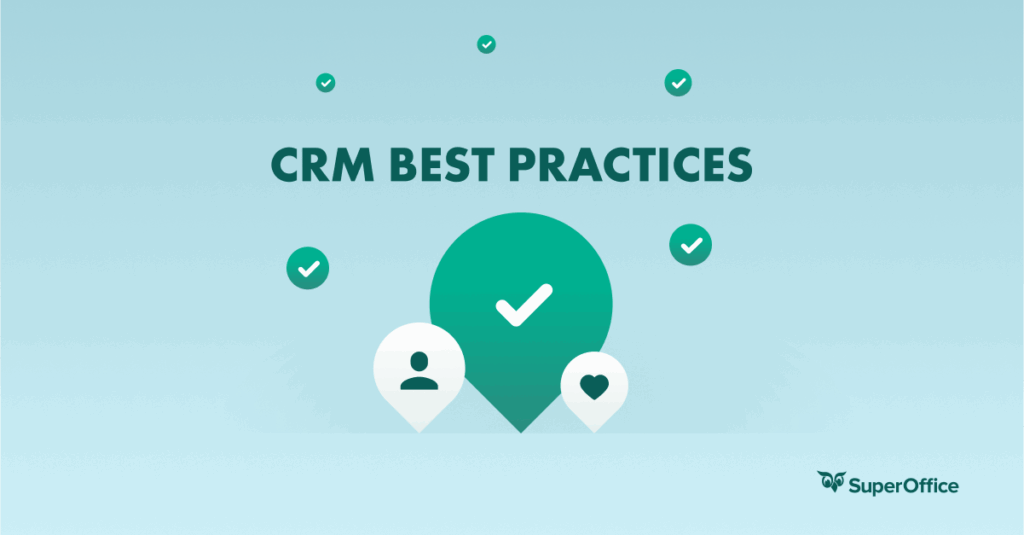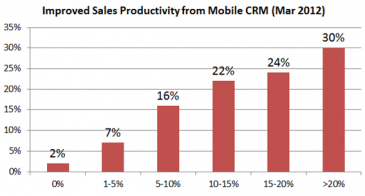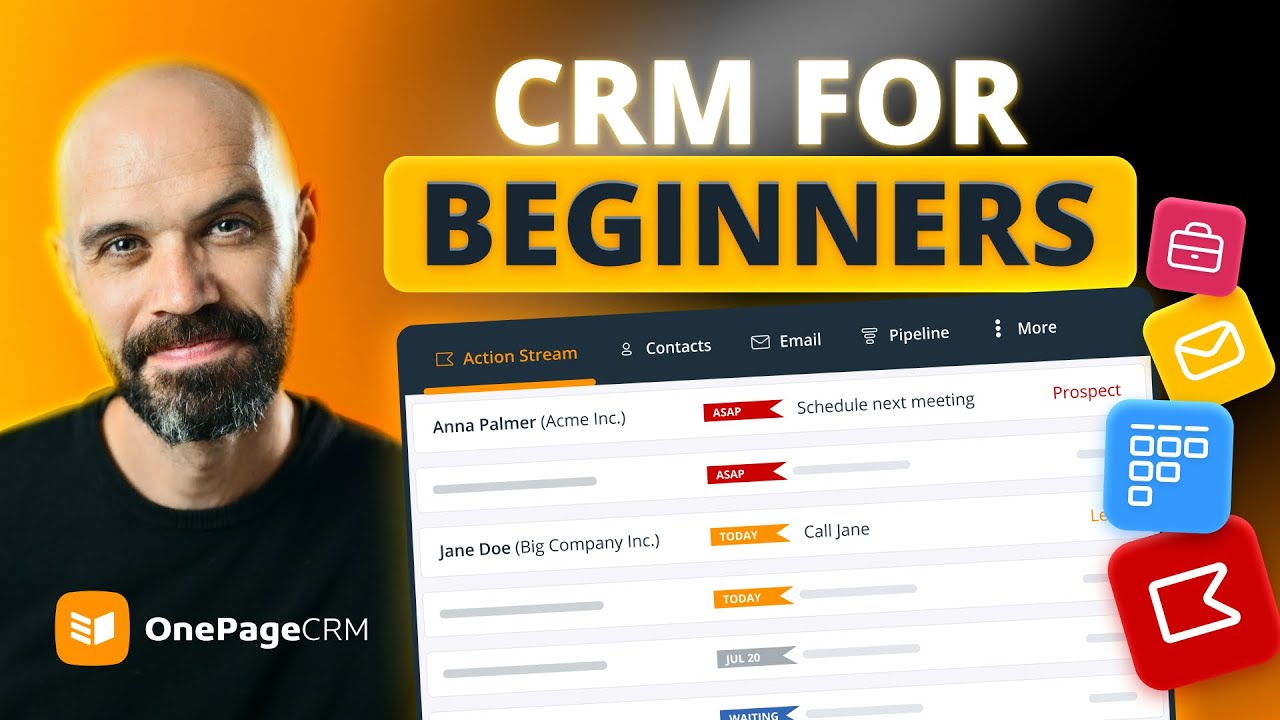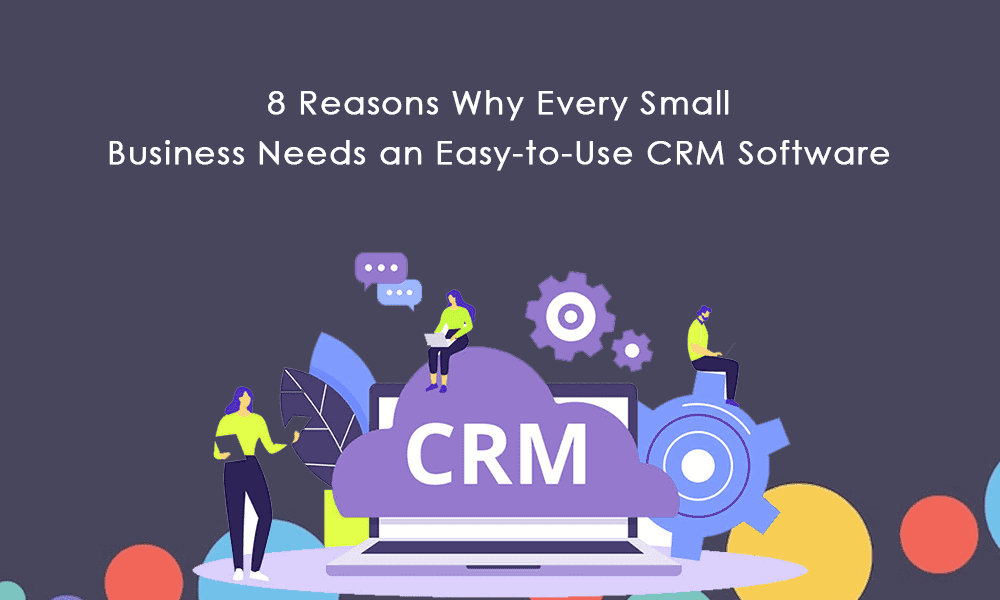CRM Marketing Best Practices 2025: Elevating Customer Relationships and Driving Growth

CRM Marketing Best Practices 2025: A Comprehensive Guide
In the dynamic landscape of 2025, Customer Relationship Management (CRM) marketing has evolved far beyond simple contact management. It’s now the cornerstone of building lasting customer relationships, driving personalized experiences, and fueling sustainable business growth. This comprehensive guide delves into the best practices for CRM marketing in 2025, providing actionable insights and strategies to help you excel in this ever-changing environment. Get ready to transform your approach and unlock the full potential of your customer data.
Understanding the Evolution of CRM Marketing
CRM marketing has undergone a significant transformation. It’s no longer just about collecting data; it’s about leveraging that data to understand your customers on a deeper level and anticipate their needs. In 2025, the focus is on creating hyper-personalized experiences that resonate with each individual customer. This shift requires a more sophisticated approach, encompassing advanced analytics, AI-powered automation, and a customer-centric mindset.
From Data Collection to Actionable Insights
The early days of CRM were primarily focused on data entry and storage. Today, CRM systems are sophisticated platforms that integrate data from various sources, providing a 360-degree view of each customer. This includes not only their contact information but also their purchase history, website activity, social media interactions, and more. The key is to transform this raw data into actionable insights that inform your marketing strategies.
The Rise of Personalization and Hyper-Personalization
Personalization has been a buzzword for years, but in 2025, it’s about hyper-personalization. This means tailoring your marketing messages, offers, and experiences to each individual customer’s specific preferences, behaviors, and needs. This level of personalization requires advanced segmentation, dynamic content, and real-time data analysis. The goal is to make each customer feel valued and understood.
AI and Automation: The Power Duo
Artificial intelligence (AI) and automation are revolutionizing CRM marketing. AI-powered tools can analyze vast amounts of data to identify patterns, predict customer behavior, and automate repetitive tasks. This frees up marketers to focus on more strategic initiatives, such as building relationships and crafting compelling content. Automation can streamline email marketing, social media posting, and lead nurturing, ensuring that the right message reaches the right customer at the right time.
Key CRM Marketing Best Practices for 2025
To thrive in the competitive landscape of 2025, you need to adopt a strategic approach to CRM marketing. Here are some of the key best practices that will help you succeed:
1. Prioritize Data Quality and Hygiene
The foundation of any successful CRM strategy is data quality. Ensure that your data is accurate, complete, and up-to-date. Regularly clean and validate your data to remove duplicates, correct errors, and ensure that contact information is current. Invest in data enrichment tools to supplement your existing data with valuable insights. Poor data quality leads to inaccurate analysis, ineffective targeting, and wasted marketing efforts.
2. Embrace Customer-Centricity
Put your customers at the heart of everything you do. Focus on understanding their needs, preferences, and pain points. Use customer feedback to inform your marketing strategies and improve your customer experience. Build a culture of customer-centricity within your organization, where every employee is empowered to prioritize the customer’s needs. This includes providing excellent customer service, responding promptly to inquiries, and resolving issues efficiently. Always strive to exceed customer expectations.
3. Segment Your Audience Effectively
Don’t treat all your customers the same. Segment your audience based on demographics, behaviors, purchase history, and other relevant criteria. This allows you to tailor your marketing messages and offers to specific groups, increasing their relevance and effectiveness. Use advanced segmentation techniques to create highly targeted segments that reflect the nuances of your customer base. Remember, the more precisely you target, the better your results will be.
4. Leverage AI and Machine Learning
AI and machine learning can automate many of the tasks that used to be done manually, freeing up your team to focus on more strategic initiatives. AI-powered tools can also analyze large datasets to identify patterns, predict customer behavior, and personalize customer experiences. Explore AI-driven chatbots for customer service, AI-powered content recommendations, and AI-driven lead scoring. Invest in training for your team to understand and utilize these technologies.
5. Implement Hyper-Personalization Strategies
Go beyond basic personalization and create hyper-personalized experiences for each customer. Use dynamic content, personalized product recommendations, and tailored offers to make each customer feel valued and understood. Leverage real-time data to deliver relevant messages at the right time. Consider using a CRM system that integrates with other marketing tools, such as email marketing platforms and social media management tools, to create a seamless customer journey.
6. Automate Your Marketing Workflows
Automation can streamline your marketing efforts and improve efficiency. Automate repetitive tasks, such as email marketing, social media posting, and lead nurturing. Use marketing automation platforms to create automated workflows that trigger actions based on customer behavior. This ensures that the right message reaches the right customer at the right time. Automation not only saves time but also helps you deliver consistent and personalized experiences.
7. Integrate Your CRM with Other Systems
Integrate your CRM system with other marketing tools, such as email marketing platforms, social media management tools, and e-commerce platforms. This allows you to share data seamlessly between systems, creating a unified view of your customers. Integration also enables you to automate workflows and personalize customer experiences across multiple channels. A well-integrated system provides a holistic view of the customer journey.
8. Focus on Omnichannel Marketing
Customers interact with your brand across multiple channels, including email, social media, website, and mobile apps. Develop an omnichannel marketing strategy that provides a consistent and seamless experience across all channels. Ensure that your messaging is consistent, regardless of the channel. Use data from all channels to understand your customers’ behavior and preferences. An omnichannel approach ensures that your customers receive a unified brand experience.
9. Measure and Analyze Your Results
Track your key performance indicators (KPIs) to measure the effectiveness of your CRM marketing efforts. Analyze your data to identify what’s working and what’s not. Use this data to optimize your strategies and improve your results. Regularly review your CRM reports to gain insights into customer behavior and preferences. Use A/B testing to experiment with different marketing messages and offers. Data-driven decision-making is crucial for success.
10. Prioritize Customer Privacy and Data Security
In 2025, customer privacy and data security are more important than ever. Comply with all relevant data privacy regulations, such as GDPR and CCPA. Be transparent about how you collect and use customer data. Implement robust security measures to protect customer data from unauthorized access. Build trust with your customers by demonstrating that you value their privacy and security. This builds loyalty and strengthens your brand reputation.
Advanced CRM Marketing Techniques for 2025
Beyond the core best practices, there are several advanced techniques that can take your CRM marketing to the next level:
Predictive Analytics
Use predictive analytics to forecast customer behavior, such as churn risk, purchase probability, and lifetime value. This allows you to proactively target customers with relevant offers and interventions. Predictive analytics can help you optimize your marketing spend and improve your ROI. Utilize the power of machine learning algorithms to identify patterns and make predictions.
Behavioral Segmentation
Segment your audience based on their online behavior, such as website activity, email engagement, and social media interactions. This allows you to create highly targeted campaigns that resonate with specific customer segments. Use behavioral data to personalize content, offers, and recommendations. Understanding customer behavior is key to delivering relevant and timely marketing messages.
Customer Journey Mapping
Map the customer journey to understand how customers interact with your brand at each touchpoint. Identify pain points and opportunities to improve the customer experience. Use customer journey maps to design targeted marketing campaigns that guide customers through the sales funnel. This holistic view allows you to optimize your marketing efforts at every stage of the customer lifecycle.
Voice of the Customer (VoC) Programs
Implement VoC programs to gather customer feedback and understand their needs and preferences. Use surveys, feedback forms, and social media monitoring to collect customer insights. Analyze this data to identify areas for improvement and inform your marketing strategies. VoC programs help you build a customer-centric culture and improve customer satisfaction.
Personalized Content Recommendations
Use AI-powered tools to recommend personalized content to customers based on their interests and preferences. This can include product recommendations, blog posts, and other relevant content. Personalized content recommendations increase engagement and drive conversions. Make sure the recommendations are relevant and valuable to the customer.
Gamification
Incorporate gamification elements into your CRM marketing campaigns to increase engagement and loyalty. Offer rewards, points, and badges for completing certain actions, such as making a purchase or referring a friend. Gamification can make the customer experience more fun and rewarding. This is particularly effective for building brand loyalty and driving repeat business.
Chatbots and Conversational Marketing
Utilize chatbots to provide instant customer support, answer questions, and guide customers through the sales process. Implement conversational marketing strategies to engage customers in personalized conversations. Chatbots can handle routine inquiries, freeing up your team to focus on more complex issues. Conversational marketing creates a more engaging and interactive customer experience.
The Role of Technology in CRM Marketing in 2025
Technology is the engine that drives CRM marketing in 2025. Here are some key technologies to consider:
AI-Powered CRM Platforms
Choose a CRM platform that incorporates AI capabilities, such as predictive analytics, automated workflows, and personalized recommendations. Look for platforms that offer advanced features, such as sentiment analysis and natural language processing (NLP). AI-powered CRM platforms can automate many of the tasks that used to be done manually, freeing up your team to focus on more strategic initiatives.
Marketing Automation Platforms
Invest in a marketing automation platform to streamline your marketing efforts and improve efficiency. Choose a platform that integrates with your CRM system and other marketing tools. Marketing automation platforms can automate email marketing, social media posting, and lead nurturing. Automate repetitive tasks and focus on building relationships with your customers.
Data Visualization Tools
Use data visualization tools to create dashboards and reports that provide insights into your CRM data. Data visualization tools can help you identify trends, patterns, and anomalies in your data. Use these insights to optimize your marketing strategies and improve your results. Data visualization makes it easier to understand complex data sets.
Customer Data Platforms (CDPs)
Consider using a CDP to collect and manage customer data from various sources. CDPs can provide a unified view of your customers, enabling you to create more personalized experiences. CDPs integrate data from multiple sources, providing a comprehensive view of the customer. They are especially useful for businesses with complex data ecosystems.
Mobile Marketing Tools
With the increasing use of mobile devices, it’s crucial to leverage mobile marketing tools. Use mobile-optimized email templates, SMS marketing, and push notifications to engage with your customers on the go. Ensure your website and other digital assets are mobile-friendly. Mobile marketing is essential for reaching your customers wherever they are.
Building a Successful CRM Marketing Strategy for 2025
Developing a successful CRM marketing strategy requires careful planning and execution. Here’s a step-by-step guide:
1. Define Your Goals and Objectives
Start by defining your specific goals and objectives for your CRM marketing efforts. What do you want to achieve? Increase sales? Improve customer retention? Enhance customer satisfaction? Set SMART goals (Specific, Measurable, Achievable, Relevant, and Time-bound) to track your progress. Clear goals provide focus and direction for your strategy.
2. Understand Your Target Audience
Conduct thorough research to understand your target audience. Create customer personas to represent different customer segments. Analyze their demographics, behaviors, preferences, and needs. The more you know about your customers, the better you can tailor your marketing messages and offers. Understanding your audience is key to creating effective campaigns.
3. Choose the Right CRM Platform
Select a CRM platform that meets your specific needs and budget. Consider factors such as scalability, features, integrations, and ease of use. Choose a platform that can grow with your business. Take the time to evaluate different options and choose the platform that best fits your requirements. Selecting the right platform is crucial for success.
4. Develop a Data Management Plan
Create a data management plan to ensure that your data is accurate, complete, and up-to-date. Implement data cleaning and validation procedures. Establish data governance policies to protect customer data. Prioritize data quality and hygiene to ensure that your marketing efforts are effective. A good data management plan is a must.
5. Create a Customer Journey Map
Map the customer journey to understand how customers interact with your brand at each touchpoint. Identify pain points and opportunities to improve the customer experience. Use customer journey maps to design targeted marketing campaigns that guide customers through the sales funnel. This helps you optimize your marketing efforts.
6. Develop a Content Strategy
Create a content strategy that provides value to your customers. Develop a variety of content formats, such as blog posts, videos, and infographics. Tailor your content to the specific needs and interests of your target audience. High-quality content is essential for attracting and engaging customers. A strong content strategy is fundamental.
7. Implement Automation and Personalization
Use marketing automation and personalization techniques to create tailored experiences for each customer. Automate repetitive tasks and personalize your marketing messages, offers, and recommendations. Leverage AI and machine learning to optimize your campaigns. Personalization is key to building strong customer relationships.
8. Track, Analyze, and Optimize
Continuously track your key performance indicators (KPIs) to measure the effectiveness of your CRM marketing efforts. Analyze your data to identify what’s working and what’s not. Use this data to optimize your strategies and improve your results. Data-driven decision-making is crucial for success. Continuous optimization is key.
9. Train Your Team
Provide your team with the training and resources they need to use your CRM platform and implement your marketing strategies effectively. Invest in ongoing training to keep your team up-to-date on the latest trends and best practices. Empower your team to succeed. Training ensures your team can maximize the CRM’s potential.
10. Foster a Culture of Customer-Centricity
Build a culture of customer-centricity within your organization. Encourage employees to prioritize the customer’s needs and provide excellent customer service. Foster a customer-focused mindset throughout your company. A customer-centric culture drives long-term success. Customer satisfaction is the ultimate goal.
Measuring the Success of Your CRM Marketing Efforts
To ensure your CRM marketing efforts are effective, it’s essential to track and measure your results. Here are some key metrics to monitor:
Customer Acquisition Cost (CAC)
CAC measures the cost of acquiring a new customer. Calculate your total marketing spend divided by the number of new customers acquired. A lower CAC indicates that your marketing efforts are efficient. Track CAC to ensure your marketing spend is effective.
Customer Lifetime Value (CLTV)
CLTV estimates the total revenue a customer will generate over their relationship with your brand. A higher CLTV indicates that your customers are valuable and loyal. Focus on increasing CLTV to maximize profitability. CLTV is a crucial metric for understanding customer value.
Customer Retention Rate
Customer retention rate measures the percentage of customers who remain loyal to your brand over a specific period. A higher retention rate indicates that your customers are satisfied and engaged. Focus on improving customer retention to build a loyal customer base. Customer retention is key for long-term success.
Churn Rate
Churn rate measures the percentage of customers who stop doing business with your brand over a specific period. A lower churn rate indicates that your customers are satisfied and likely to remain loyal. Focus on reducing churn to retain your customer base. Minimizing churn is essential for sustainable growth.
Conversion Rate
Conversion rate measures the percentage of customers who complete a desired action, such as making a purchase or signing up for a newsletter. A higher conversion rate indicates that your marketing campaigns are effective. Optimize your campaigns to improve conversion rates. Conversion rate is a key indicator of marketing effectiveness.
Website Traffic and Engagement
Track website traffic, bounce rate, time on page, and other engagement metrics to understand how customers interact with your website. Analyze this data to optimize your website and improve the customer experience. Website metrics provide insights into customer behavior. Website traffic is a good indicator of interest.
Email Marketing Metrics
Monitor email open rates, click-through rates, and conversion rates to measure the effectiveness of your email marketing campaigns. Optimize your email campaigns to improve engagement and drive conversions. Email marketing metrics provide insights into customer engagement. Email marketing is a valuable channel.
Social Media Engagement
Track social media likes, shares, comments, and other engagement metrics to measure the impact of your social media marketing efforts. Analyze this data to optimize your social media strategy and improve your results. Social media engagement is a good indicator of brand awareness. Social media offers a direct line to customers.
Customer Satisfaction (CSAT) Score
CSAT score measures customer satisfaction with your products or services. Use surveys and feedback forms to collect customer feedback. A higher CSAT score indicates that your customers are satisfied. Focus on improving CSAT scores to increase customer loyalty. CSAT scores indicate customer happiness.
Net Promoter Score (NPS)
NPS measures customer loyalty and willingness to recommend your brand. A higher NPS indicates that your customers are likely to recommend your brand to others. Focus on improving NPS to build a loyal customer base. NPS indicates customer loyalty and brand advocacy.
The Future of CRM Marketing: Trends to Watch
The future of CRM marketing is exciting, with new technologies and trends emerging constantly. Here are some key trends to watch:
Personalized Experiences at Scale
The ability to deliver highly personalized experiences at scale will be a key differentiator. AI and machine learning will play a crucial role in enabling this. Personalization will become more sophisticated. Businesses are working to create unique experiences for each customer.
The Rise of Conversational AI
Conversational AI, such as chatbots and virtual assistants, will become even more prevalent. These tools will provide instant customer support, answer questions, and guide customers through the sales process. Conversational AI will be a game-changer. Chatbots are improving customer experience.
Data Privacy and Ethical Considerations
Data privacy and ethical considerations will become increasingly important. Businesses will need to be transparent about how they collect and use customer data. Compliance with data privacy regulations will be essential. Data privacy is a top priority. Trust is key to building customer loyalty.
The Metaverse and CRM
The metaverse will open up new opportunities for CRM marketing. Businesses will be able to create immersive experiences and engage with customers in new ways. The metaverse offers new possibilities. CRM is expanding into the metaverse.
The Integration of Blockchain Technology
Blockchain technology may be used to enhance data security and transparency in CRM systems. Blockchain could revolutionize data security. Transparency is key for building trust.
The Evolution of CRM Platforms
CRM platforms will continue to evolve, with new features and capabilities being added regularly. The focus will be on providing a seamless and integrated experience for marketers. CRM platforms are always evolving. They are becoming more powerful and user-friendly.
Conclusion: Embracing the Future of CRM Marketing
CRM marketing is constantly evolving, and the best practices for 2025 reflect this dynamic landscape. By embracing these best practices, leveraging advanced technologies, and focusing on customer-centricity, you can build lasting customer relationships, drive personalized experiences, and achieve sustainable business growth. The future of CRM marketing is bright, and the opportunities for innovation are endless. Stay ahead of the curve, adapt to the changing environment, and continue to prioritize your customers. The path to success lies in the ability to adapt and innovate. Embrace the future of CRM.




